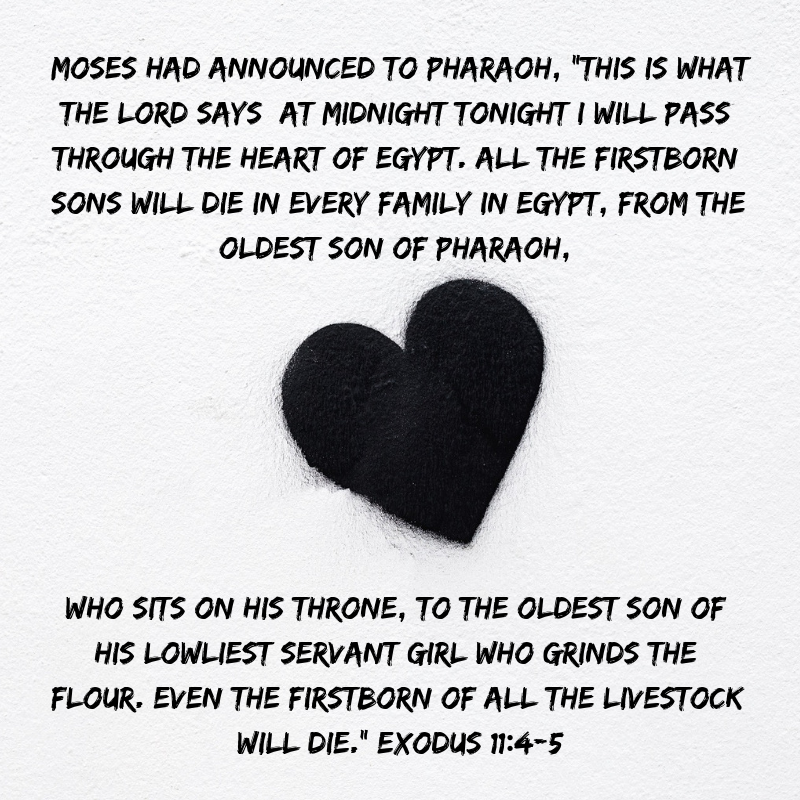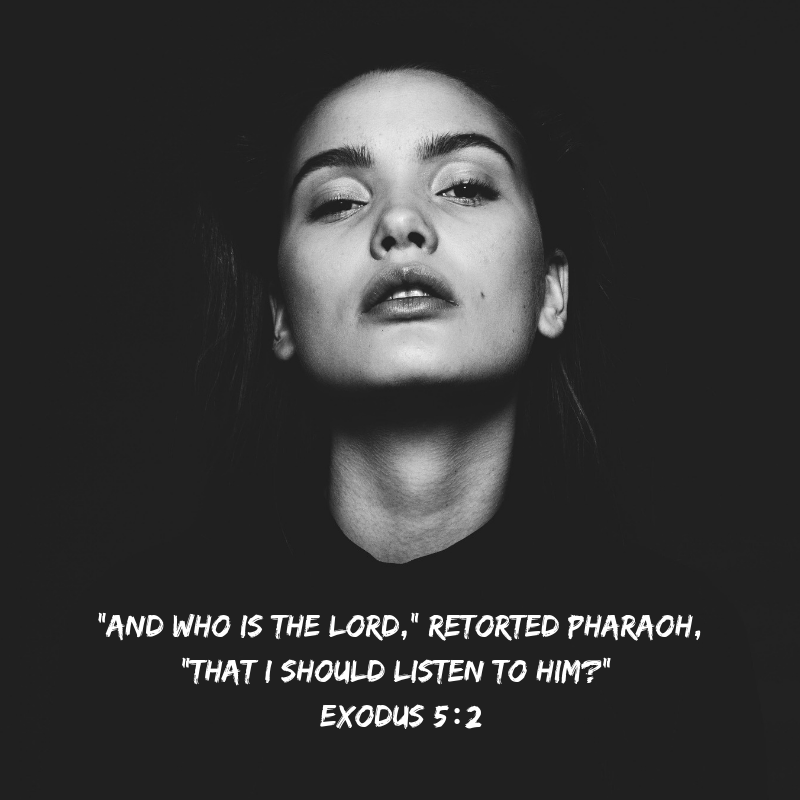by the time
God announced
the plague
on the firstborn
for the /second/ time
didn't Pharaoh know
God could and
would
do exactly
what He said
after the
blood
frogs
gnats
flies
dead livestock
boils
hail
locusts and
darkness
was there anything left
more dark
than Pharaoh's heart
how dark does it have to get
to not understand
that your opponent
controls
the very elements
-all of them-
didn't Pharaoh know
that if God said
his son was going to die
he would /in fact/
be planning a funeral
if he didn't
change course
why wouldn't you change course
in ancient egypt
the only person more important
than the firstborn son of the Pharaoh
was Pharaoh himself
why wouldn't you change course
is there anything
in this world
more powerful
than the human heart
is there anything
more capable
of being more implacable
than the heart
bent on rebellion
is there anything
more wild and dangerous
than the freedom to choose
and the power
it imparts
the power to
so harden ourselves
to truth
that /in the end/
we could sacrifice
what is most important
to us
and be ourselves
swallowed up by
allconsuming
darkness





















